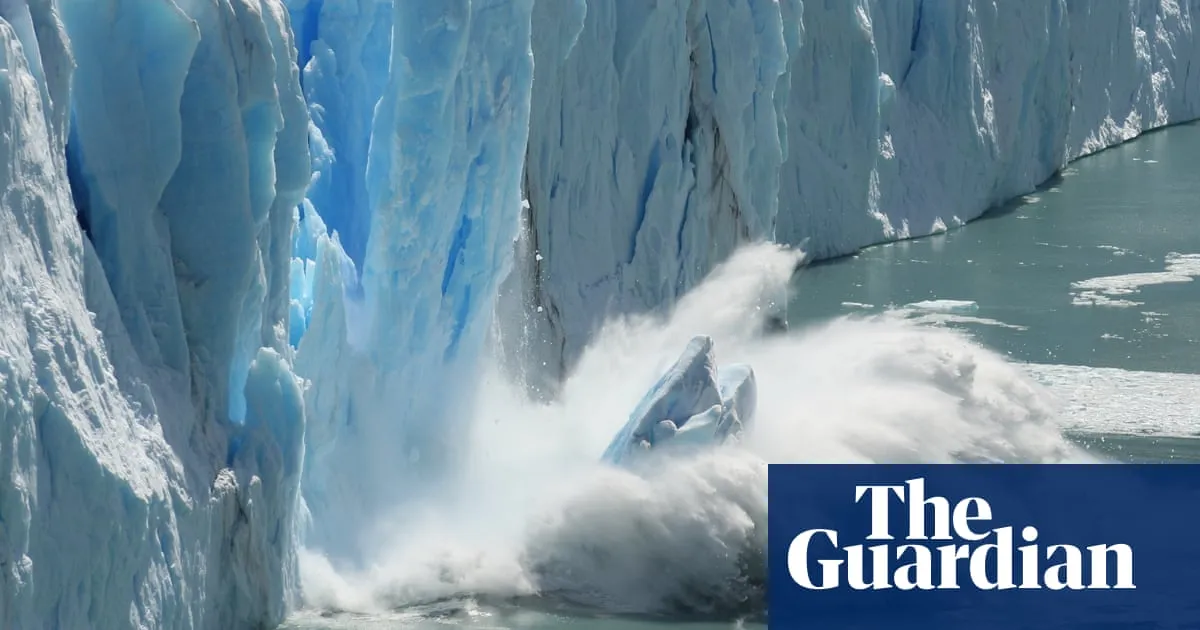
Recent research reveals that sea level rise will become unmanageable at just a 1.5°C increase in global temperatures, potentially leading to catastrophic inland migration. This alarming scenario could emerge even if the current average temperature increase of 1.2°C persists. The study highlights that the loss of ice from the massive Greenland and Antarctic ice sheets has quadrupled since the 1990s due to the ongoing climate crisis, making it the main driver behind rising sea levels.
The international goal to restrict global temperature rise to below 1.5°C is increasingly out of reach. The analysis indicates that even if we swiftly cut fossil fuel emissions, we could still see sea levels rising by approximately 1 cm per year by the end of the century. This rate of increase is faster than what many nations can manage through the construction of coastal defenses.
Current projections suggest that the world is on track for a temperature rise between 2.5°C and 2.9°C, which would likely push us past critical tipping points for the collapse of the Greenland and West Antarctic ice sheets. The melting of these ice sheets could result in a staggering 12 meters of sea level rise. Currently, around 230 million people reside just 1 meter above current sea levels, while 1 billion live 10 meters above sea level, making them highly vulnerable to flooding.
Even a modest increase of just 20 cm in sea level by 2050 could lead to global flood damages exceeding $1 trillion annually for the world’s 136 largest coastal cities, severely impacting people’s lives and livelihoods. Despite this grim outlook, scientists stress that every fraction of a degree of global heating that is avoided through proactive climate action remains crucial. It not only mitigates the pace of sea level rise but also allows more time for communities to adapt, ultimately reducing human suffering.
Research indicates that the 1.5°C limit was originally intended to prevent the most severe consequences of global heating; however, new findings suggest this threshold may not sufficiently protect against sea level rise. The researchers estimate that the "safe limit" for the stability of ice sheets is likely closer to 1°C or lower, and that a rise of at least 1-2 meters is now unavoidable.
In the UK, a mere 1 meter rise in sea level would result in significant portions of the Fens and Humberside being submerged. Professor Jonathan Bamber from the University of Bristol notes, “The safe limit allows for some level of adaptation, rather than catastrophic inland migration.” He emphasizes that reaching a rise of 1 cm per year could make adaptation exceedingly difficult, potentially resulting in unprecedented land migration.
Developing nations, such as Bangladesh, are expected to suffer far more than wealthier countries like the Netherlands, which have the resources to build effective coastal defenses. Professor Chris Stokes from Durham University, the study's lead author, warns that at the current warming level of 1.2°C, sea level rise is accelerating at rates that could become unmanageable before the century's end, affecting the lives of future generations.
Historical data reveals that the average global temperature reached 1.5°C for the first time in 2024. However, since the international target is assessed over a 20-year period, it hasn't been officially breached yet. The study, published in the journal Communications Earth and Environment, combines findings from past warm periods, recent observations of ice melting, and advanced climate models, concluding that ongoing mass loss from ice sheets poses an existential threat to coastal populations worldwide.
Professor Andrea Dutton from the University of Wisconsin-Madison, a member of the research team, states, “Evidence from past warm periods suggests that several meters of sea level rise—or even more—could be expected once global mean temperatures exceed 1.5°C.” The last ice age saw sea levels rising at ten times today’s rate, influenced by feedback loops triggered by minor temperature increases. The last time atmospheric CO2 levels mirrored today’s concentrations, sea levels were 10-20 meters higher.
Even if humanity manages to restore the planet to preindustrial temperatures by removing CO2 from the atmosphere, it could take hundreds to thousands of years for the ice sheets to regenerate fully. This means that land lost to sea level rise may remain submerged for an extended period, potentially until the next ice age. Carlos Fuller, Belize’s long-time climate negotiator, emphasizes the urgency of adhering to the 1.5°C Paris Agreement limit, stating that findings from studies like these underscore the critical need to protect our coastal cities.